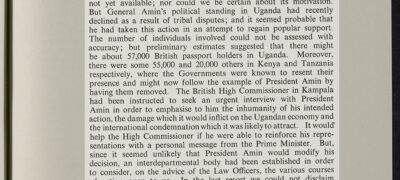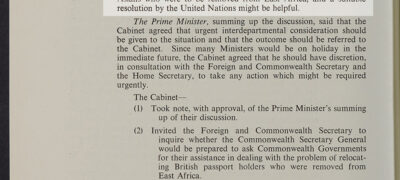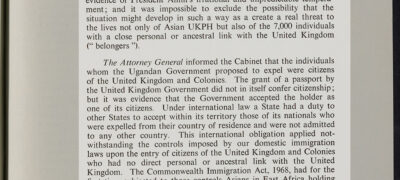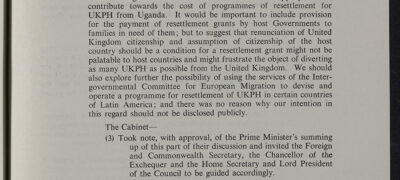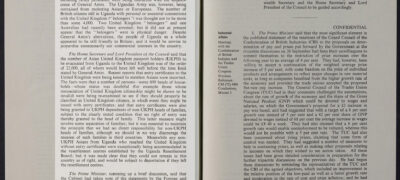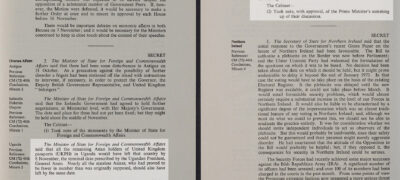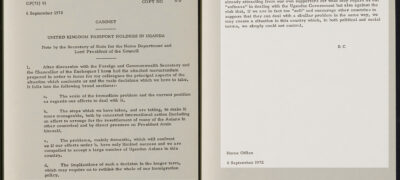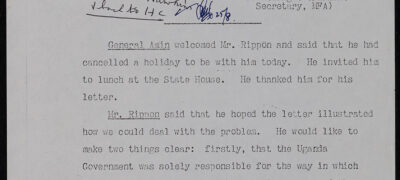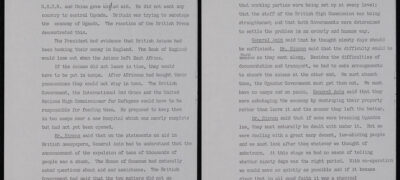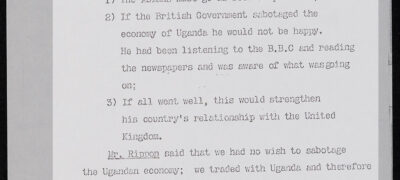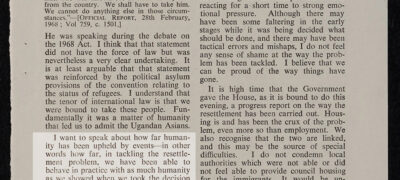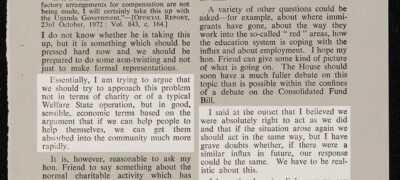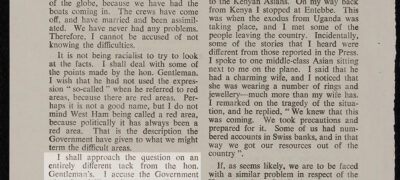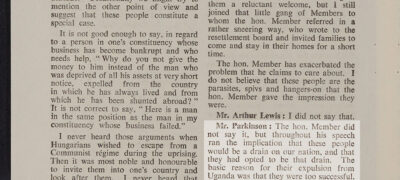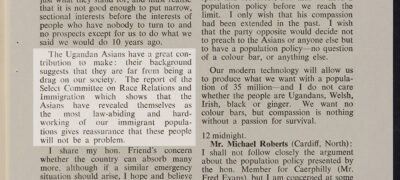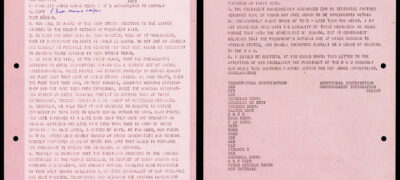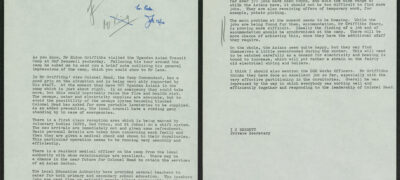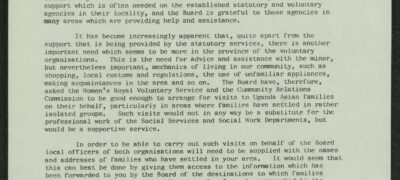Teachers' notes
Download documents and transcripts
Introduction
On 4 August 1972, General Idi Amin, President of Uganda, declared that Britain needed to take on the responsibility of caring for British subjects who were of Asian origin. He announced that all Asian holders of British passports in Uganda would have to leave the country within ninety days. This was followed by an announcement that all Asian-owned properties and businesses would be confiscated, without compensation.
The British government’s reaction was ambiguous. It tried to persuade other countries to take the expellees (including approaches to India, Malawi and Canada) but ultimately the government made a clear commitment that all UK passport holders would be admitted. The government enabled some 27,000 to move to the UK through the Uganda Resettlement Board.
There were objections to the arrival of the Ugandan Asians in the UK from some quarters and undoubtedly there were some problems regarding conditions in some resettlement camps and securing decent accommodation in general. However, over time, this migration came to be seen, in broad terms, as a success story. In his autobiography, The Course of My Life, Prime Minister Edward Heath wrote that he never regretted to decision to take in the refugees, ‘for the Ugandan Asians have brought a wealth of endeavour, enterprise and natural talent to these shores’.
Back to top
